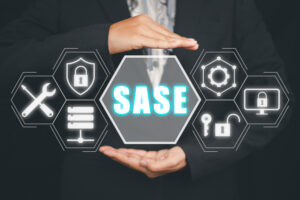
As companies increasingly depend on SaaS, they expose themselves to security risks such as cyberattacks and data leakage by granting data access to third-party providers.
Many organizations rely heavily on the Software-as-a-Service (SaaS) model to provide applications to their users. Today, it is quite common to use SaaS solutions to run all business operations activities, compute operations, AI and ML efforts, and more. However, security is and remains a top concern.
That point was seconded in a recent report from Onymos, a developer of SaaS solutions. The report reveals that 78% of technology leaders are concerned about security threats associated with SaaS in application and software development. Based on a survey of 300 IT, security, and development leaders across midmarket and enterprise organizations in the U.S., the “SaaS Disruption Report” underscores growing anxiety over data privacy and security risks as the adoption of SaaS and cloud services continues to rise.
Data Privacy and Security Top Priorities Amid SaaS Adoption
The “SaaS Disruption Report: Security & Data” highlights that while enterprises heavily rely on SaaS to accelerate development processes, they face significant security challenges. With 45% of organizations globally predicted to experience software supply chain attacks by 2025, the report emphasizes the urgency for robust data privacy measures. Nearly half (45%) of the surveyed leaders reported experiencing a cybersecurity incident involving a third-party SaaS solution in the past year. Key findings show that security (72%) and data privacy (65%) are the most critical concerns in application development. Furthermore, 91% of respondents believe that retaining data within custom-built internal applications is crucial, rather than relying solely on external SaaS providers.
See also: With AI, It’s a Complex Future for Cybersecurity
Challenges and Market Gaps Identified
The report identifies a significant gap in how enterprises manage data privacy when using SaaS. As companies increasingly depend on SaaS for both general operations and specific functions, they expose themselves to risks such as cyberattacks and data leakage by granting data access to third-party providers. Despite the benefits of SaaS, such as faster time-to-market and enhanced functionality, only 36% of tech leaders keep all applications on-premises or in private clouds, illustrating a lack of confidence in the security of external SaaS solutions.
Onymos’ research suggests a growing need for solutions that allow companies to maintain control over their data while still leveraging the advantages of SaaS. A second report, expected later this year, will delve further into the processes, priorities, and challenges U.S.-based midmarket and enterprise organizations face in software development.





























